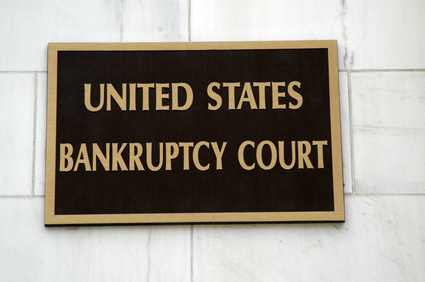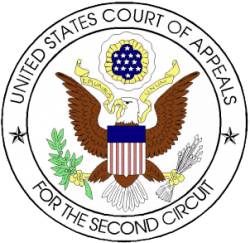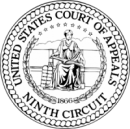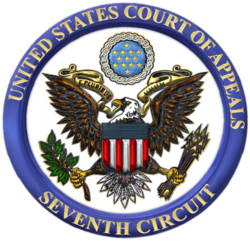As an example of the conflicting and contrasting court rulings on the effect of surrender in bankruptcy (see our prior update), the District Court of Appeal of the State of Florida, Fifth District, recently dismissed a borrower’s appeal from a final judgment of foreclosure because the borrower admitted during the course of his bankruptcy proceeding that he owed the mortgage debt and stated his intention to surrender the mortgaged property. A copy of the opinion in Rivera v. BAC Home Loans is available at: Link to Opinion. A mortgage loan borrower filed for bankruptcy relief while his appeal of a foreclosure…
Posts tagged as “Bankruptcy”
The U.S. Bankruptcy Court for the Southern District of Florida recently denied a creditor’s motion to compel the debtor to surrender mortgaged property and also denied the debtor’s motion to stay the case, holding that a chapter 7 debtor who indicates surrender of real property in his statement of intention is not obligated to surrender that property to the lienholder, whether or not the property is administered by the chapter 7 trustee. Disagreeing with other judges in the same district and elsewhere on this issue, the bankruptcy judge held that “[c]ompulsory surrender of real property collateral by a debtor to…
The U.S. Court of Appeals for the Seventh Circuit recently held that a mortgagor is not a third-party beneficiary under a pooling and servicing agreement under New York law, and therefore lacks standing to challenge purported violations of assignments under the agreement. A copy of the opinion in In re Jepson is available at: Link to Opinion. A borrower executed a note for a loan secured by a mortgage. The note was indorsed by the lender in blank and transferred to a residential mortgage-backed securities trust formed and governed by a pooling and servicing agreement (“PSA”). The trust’s trustee held the…
A recent decision from a United States Bankruptcy Court in the Northern District of Illinois provides a detailed analysis of why proofs of claim on “time-barred” debt do not violate the federal Fair Debt Collection Practices Act (FDCPA) or the Bankruptcy Code. The decision, Glenn v. Cavalry Investments, LLC, is among the growing number of decisions rejecting Crawford v. LVNV from the Eleventh Circuit Court of Appeals. A copy of the opinion is available at: Link to Opinion. The debtor, Darryl Glenn, voluntarily commenced a chapter 13 bankruptcy in August 2014. The creditor, Cavalry Investments, filed a timely proof of…
The U.S. Court of Appeals for the Second Circuit recently held that a debtor in bankruptcy can pursue claims under the federal Fair Debt Collection Practices Act in district court for trying to collect a discharged debt, reversing a judgment dismissing the FDCPA claims and requiring the plaintiff seek relief in bankruptcy court. A copy of the opinion in Garfield v. Ocwen Loan Servicing, LLC is available at: Link to Opinion. The debtor defaulted on her mortgage loan and filed for Chapter 13 bankruptcy, agreeing in her reorganization plan to pay the arrearage on her mortgage in monthly payments. The debtor received…
The U.S. Bankruptcy Court for the Middle District of Florida recently overruled a debtor’s objection to a mortgagee’s secured claim and denied the debtor’s motion to determine secured status, holding that the issues should have been brought by adversary proceeding, and in any event neither Florida’s statute of limitations nor its statute of repose barred enforcement of the note and mortgage. A copy of the opinion in In re Anthony is available at: Link to Opinion. A mortgagee filed a mortgage foreclosure action in Florida state court in 2009. The complaint contained a paragraph accelerating the note. The mortgagee also…
The U.S. Bankruptcy Court for the Middle District of Florida recently held that: 1) A bankruptcy trustee was entitled to recover $1,000 in statutory damages on behalf of each of the husband and wife debtors against a loan servicer for violating the Florida Consumer Collection Practices Act (FCCPA) by contacting the debtors after they were represented by counsel; and 2) The servicer could not set off the $2,000 in FCCPA damages against the balance owed on the mortgage loan because, according to the Court, allowing a set off would thwart the FCCPA’s goal of deterring abusive debt collection practices; and…
The U.S. Court of Appeals for the Ninth Circuit, in a case of first impression, recently held that section 1328(f) of the Bankruptcy Abuse Prevention and Consumer Protection Act (BAPCPA), which bars so-called “Chapter 20” debtors from receiving a discharge at the conclusion of their Chapter 13 reorganization if they received a Chapter 7 discharge within four years of filing the petition for Chapter 13 relief, does not prevent a debtor from voiding a secured creditor’s lien under section 506(d) of the Bankruptcy Code. A copy of the opinion is available at: Link to Opinion. In 2007, husband and wife…
The U.S. Bankruptcy Court for the Middle District of Florida recently held that, at a minimum, “surrender” under Bankruptcy Code §§ 521 and 1325 means a debtor cannot take an overt act that impedes a secured creditor from foreclosing its interest in secured property. In so holding, the Court found that actively contesting a post-bankruptcy foreclosure case is inconsistent with a “surrender” of the property. A copy of the opinion is available at: Link to Opinion. The Court addressed two separate bankruptcy cases. The first was a Chapter 7 bankruptcy case, in which the mortgagee instituted a foreclosure action five…
The U.S. Supreme Court recently held that a debtor in a Chapter 7 case cannot “strip-off” or void a wholly unsecured junior mortgage under section 506(d) of the Bankruptcy Code. A copy of the opinion is available at: Link to Opinion. The debtors in the consolidated cases both had two mortgages on their homes. The petitioner held a second-position mortgage on each of the homes. The senior mortgage on each home exceeded its fair market value, meaning that the junior mortgages were entirely unsecured and “underwater.” Each debtor moved to “strip-off” or void the junior mortgage liens pursuant to section 506(d)…
The U.S. Court of Appeals for the Seventh Circuit recently held that a secured creditor must file its proof of claim no later than the 90-day deadline under Federal Rule of Bankruptcy Procedure 3002(c) in order to receive distributions under a Chapter 13 plan of reorganization. A copy of the opinion is available here: Link to Opinion. An individual debtor filed his petition under Chapter 13 of the Bankruptcy Code. The clerk of the Bankruptcy Court mailed the “Notice of Chapter 13 Bankruptcy Case, Meeting of Creditors, & Deadlines” to the debtor’s creditors. Pursuant to Federal Rule of Bankruptcy Procedure 3002(c),…
Addressing what it termed “a deluge [that] has swept through U.S. bankruptcy courts of late” the 11th Circuit Court of Appeals in Crawford v. LVNV Funding, LLC held that filing a proof of claim on time barred debt is conduct that violates the Fair Debt Collection Practices Act (“FDCPA”). Background The last payment on the underlying debt was made in 2001 and subject to Alabama’s three year statute of limitations. The debtor filed for relief under the Bankruptcy Code in 2008 during which the current owner of the debt filed a proof of claim. Neither the debtor nor the Chapter…









